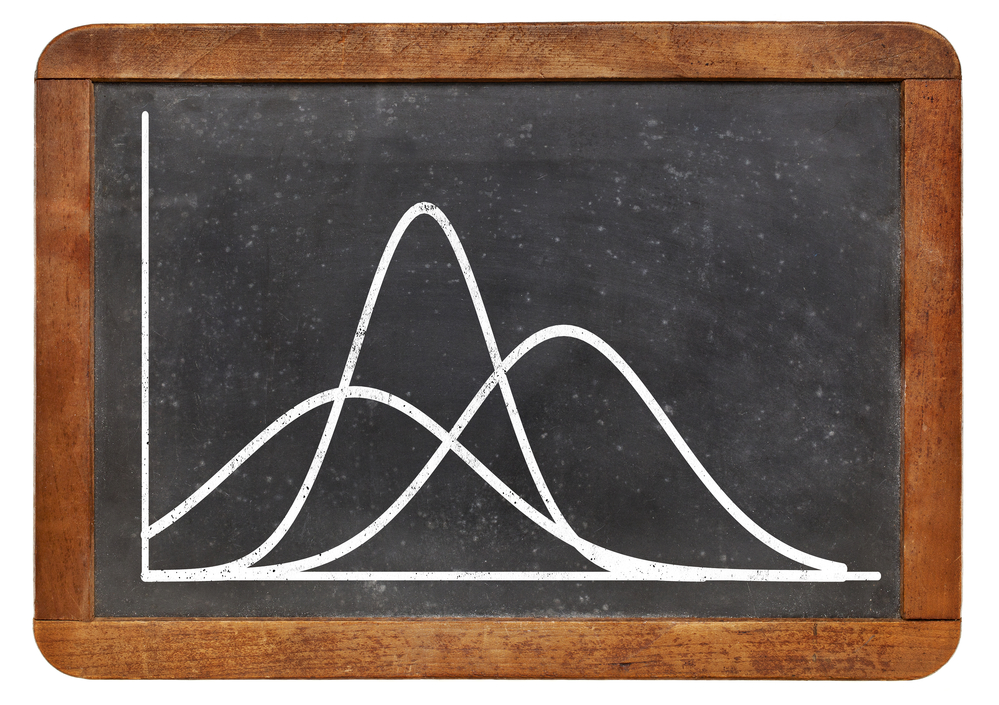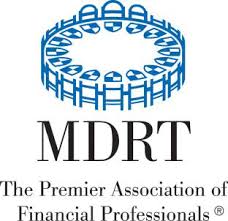What is Disability Insurance?
When asked about their most valuable asset, most people will respond that it is their home or their retirement investments. But the reality is that for many, the ability to earn an income is at the top of the list. That’s because, without your income earning ability, few – if any – other assets could be obtained.
So, similar to protecting your home, your vehicle, and your other important assets, it is essential to protect your paycheck. That can be done with disability insurance coverage.
What Does Disability Insurance Coverage Do?
Disability insurance can replace a percentage of your income if you contract an injury or an illness and you are unable to work for a period of time. There are many types of disability insurance plans available, including short-term and long-term coverage. There are also individual, group, and association-sponsored disability plans.
 Evolution of Disability Insurance
Evolution of Disability Insurance
How Disability Insurance Came into Existence
Back in the late 1800s, what is now known as disability insurance was initially “accident insurance coverage.” The Railway Passengers Association Company, formed in 1848 in England, covered railroad passengers in case of injuries that were received under various conditions. Those who sat in the roofless carriages were typically charged a higher amount of premium, due to their higher risk of becoming injured.
In 1956, amendments were added to the Social Security Act (which initially established the Social Security program in 1935). With these amendments, the Social Security disability insurance program was initiated.
How Disability Insurance Has Changed Throughout the Years
Throughout the years, disability insurance has evolved, and the policies have become much more flexible in terms of the benefits that are offered, as well as the duration of coverage. Depending on the policy, qualifying for benefits may also be more or less stringent. In fact, the available benefits, and the premiums that are charged, can vary from one insurance company to another, as well as between occupations, and the state that the insured resides in.
How Does Disability Insurance Work Today?
Today, both short- and long-term disability coverage can be purchased by individuals. This type of insurance is also oftentimes included in employer-sponsored group benefits plans. Depending on your income replacement needs, both types of coverage could be required in order to keep up your current lifestyle.
Learn more about short-term disability insurance <Link to Short Term Disability Insurance post>, long-term disability insurance for individuals <Link to Long Term Disability Insurance for Individuals post>, and group / employer-sponsored coverage <Link to Group / Employer Disability Insurance post>.
There are also a number of strategies that can be used by business owners and key persons to help with covering the cost of a disability. These plans can keep income flowing in for a business owner, and can even ensure that there are funds available for partners to purchase a disabled business owner’s share of the company if he or she is unable to return to work. <Link to Disability Insurance for Business Owners post, Link to Disability Insurance for Key Persons post, and Link to Disability Buy Out Insurance post>.
Similarly, there are Business Overhead insurance policies that can even help to continue paying for company expenses like office rent, supplies, and employee salaries. Learn more about Business Overhead / Overhead Expense Insurance. <Link to Business Overhead Insurance / Overhead Expense Insurance post>
Disability Insurance Statistics – Will You Become Disabled?
 Although you may be aware of others who are disabled, the odds are somewhat high that even if someone is young and healthy now, they will suffer at least some type of disability in the future.
Although you may be aware of others who are disabled, the odds are somewhat high that even if someone is young and healthy now, they will suffer at least some type of disability in the future.
In fact, based on statistics from the U.S. Center for Disease Control and Prevention, approximately one in four U.S. adults were disabled in 2018. And, someone who is currently 35 years old has about a 50% chance of becoming disabled for at least 90 days before they reach the age of 65.
Further, one in seven people who are between age 35 and 65 can anticipate having a disabling condition that lasts for five or more years. This, in turn, can become quite costly – especially if your condition prevents you from being able to work and earn an income.
Plus, in addition to your everyday living expenses, it is possible that a disability could bring about even more expenses that are related to your condition, such as the cost of a wheelchair or walker, additional medications, and / or the installation of grab bars, ramps, and other equipment in your home to help with your mobility.
Learn more about how much a disability can really cost you – it may be much more than you think. <Link to The Cost of Becoming Disabled post>
What Would Happen If You Became Disabled and Could Not Work?
So, what would happen if you became disabled and you could not work?
It’s possible that you may have some savings set aside for emergencies that could be used – at least for the short-term. But even if you have six to twelve months of living expenses socked away, these funds will eventually dissipate. And, if you had to dip into other assets, such as your retirement account, you could be doing more harm than good, as this can create even more financial hardship in the future.
How Much Does a Disability Really Cost?
Becoming disabled can be challenging physically, emotionally, and financially. This is the case for the disabled individual, as well as for his or her family. In addition, when it comes to disability, there are both direct and indirect costs.
For example, the direct costs can include additional health care and medical related expenses. And, if you’re not bringing in an income, even your everyday living costs can be difficult to meet, much less the added expense of other supplies and services that you may require.
There is also the indirect cost of being disabled, such as added stress, and the feeling of isolation that can be present – especially if you are unable to get around on your own.
Learn more about the true cost of becoming disabled. <Link to The Cost of Becoming Disabled post>
What is the Difference Between Disability Insurance and Health Insurance?
Although disability insurance is a form of health insurance, it is quite different from a regular health insurance plan that covers hospitalization, medical care, and doctors’ visits. Disability insurance will also not cover long-term care services.
Rather, disability coverage is used to replace income if you should become ill or injured and be unable to work for a period of time. Given that, disability insurance is oftentimes referred to as “paycheck insurance.”
Both types of insurance can offer you a financial “safety net,” but this net provides protection for different things. As an example, regular health insurance will usually cover some or all of the costs that are associated with:
- Routine doctor visits and check ups
- Health screenings
- Immunizations
- Treatment of injuries and / or illnesses
- Emergency medical care
Typically, you will be required to pay some amount of deductible, coinsurance, and / or copayment amount when you receive these services. In addition, your regular health insurance plan may also have provisions for covering some or all of the cost of prescription medication, dental care, and / or vision care services.
However, your regular health or medical insurance plan will not cover your lost wages if you are not able to work and continue earning an income. That is what a disability insurance policy can provide. Given that, in order to be completely covered, you need both health insurance and disability insurance.
Learn more about the differences between health insurance and disability insurance. <Link to Disability Insurance versus Health Insurance post>
Do You Need Disability Insurance?
At the moment, you may be young and healthy, with the thought of becoming disabled being the furthest thing from your mind. But, things can – and sometimes do – change fast. Consider, for instance, that many people have little to no savings in place, so even missing work for several weeks while recovering from an auto accident, skiing accident, broken leg from a sports injury, or unexpected illness can present some significant financial challenges.
So, do you really need disability insurance?
In a word, yes – if you don’t want to worry and wonder where income will come from if you miss out on getting a paycheck for a period of time. Learn more about whether or not you really need disability insurance coverage. <Link to Do You Really Need Disability Insurance post>
What Happens If You Don’t Have Disability Insurance Coverage?
If you do not have disability insurance, you may still have at least some options – but admittedly, they will likely be quite limited. One is to apply for Social Security disability coverage.
Unfortunately, though, even if you have a severe disabling condition and enough quarters or credits to qualify for benefits, you still may or may not be approved. In fact, most people are not approved for Social Security disability on their first try. So, it could take multiple attempts – and a great deal of time – to obtain this coverage. <Link to Understanding Social Security Disability Coverage post>
You may also be able to use money that you have set aside in savings and / or investments. These funds, however, are oftentimes earmarked for other needs. So, while using this money could provide you with a temporary fix, it is definitely not a permanent solution – and could even cause more financial challenges down the road if these funds are all used up.
Understanding Social Security Disability Coverage
One potential source of disability income is Social Security. However, it is absolutely essential that you not assume that these benefits will be available to you if you should become disabled. One reason for this is because the criteria needed to qualify for these benefits is very stringent.
For instance, you must work (or have worked) in a covered job. This means that you’ve earned a certain number of “quarters of coverage.” In most cases, people need to have 40 quarters of coverage earned, with 20 of those earned within the 10 years just prior to the onset of your disabling condition. (If you are young and have not worked for a long period of time, you may still be able to qualify with fewer quarters of coverage).
In addition, even if you have enough credits, your condition must be considered severe, and anticipated to last for at least 12 months. The bottom line is that, unless you are unable to perform the duties of ANY occupation – not just your own job – you won’t likely qualify for Social Security disability income benefits.
What that in mind, should you really rely on Social Security disability coverage?
In most cases, the answer to that question is a resounding “no.”
Learn more about how Social Security disability benefits work, how you may – or may not – qualify, what questions to anticipate from the Social Security Administration, and how long you will have to wait for these benefits to begin even if you do qualify for coverage. <Link to Social Security Disability Benefits post>
Why Include Disability Insurance in Overall Financial Planning?
Because your odds of becoming disabled are so high throughout your lifetime, disability insurance should be considered as a part of any good, solid financial plan. That’s because without this coverage, you run the risk of losing your income stream – possibly for the remainder of your lifetime.
With that in mind, the “cost” of a disability insurance policy’s premium is more than worth it when you consider the fact that this important protection can allow you to maintain your standard of living, even if the unexpected occurs.
Learn more about how you can obtain a disability insurance quote from a top rated provider. <Link to Quote engine>
Disability Insurance Frequently Asked Questions
Is group disability coverage enough?
In most cases, group disability insurance only provides a limited amount of coverage, as well as for just a short duration of time. Because of that, it is typically recommended that you supplement this coverage with individual disability insurance protection.
If you have Social Security disability, do you need an individual policy?
It can be extremely difficult and time-consuming to apply for and qualify for Social Security disability benefits – and many people will not be granted this coverage the first time they apply. In addition to that, there is five month waiting period before you will start to receive these benefits. Because of that, having an individual disability insurance policy is often recommended so that you don’t have to use savings and / or other assets for paying your everyday living expenses.
What is the best disability insurance policy to purchase?
The best disability insurance policy will be dependent on your specific needs and budget. Working with an independent insurance advisor can allow you to shop and compare policies and quotes from many of the top rated disability insurance carriers. Learn how you can obtain a customized disability insurance quote. <Link to Quote engine>

 Speak with an experienced advisor!
Speak with an experienced advisor! 




